SF Planning's Community Equity Advisory Council
Overview
The Equity Council is a multi-cultural collective of community leaders dedicated to addressing racial and social equity for marginalized communities that have been historically invisible to executive and legislative decision-makers.
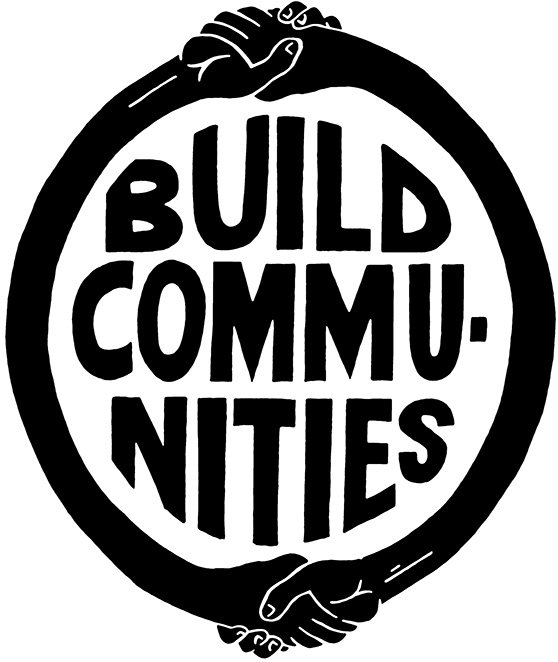
Through collaborative deliberation, in-depth engagement and discussions between the council and City agencies, the group of eleven San Francisco community leaders advise City staff on policies, strategies, and investments.
Racial and social inequities have long been part of the intrinsic make up of our country and have deep-seated roots in the laws, policies, and ordinances we have passed throughout history. Like many cities across the country, San Francisco has had its share of discriminatory practices constraining the resources and well-being of American Indian and Black communities as well as other communities of color and low-income communities.
In 2020, San Francisco Planning Commission and Historic Preservation Commission adopted resolutions centering the Planning Department's work program and resource allocation on racial and social equity. The Equity Council is a response to these resolutions and to the guidance from the Office of Racial Equity to ensure the representation of our diverse communities to address the current crisis and resolve historic inequities.
A critical part of our work plan is to develop a platform and a process for deeper community engagement to ensure productive dialogues between city agencies and our community organizations, networks, and coalitions serving communities of color, low-income communities, and other vulnerable populations.
More information about the council's organization and group agreements can be found on the Community Equity Advisory Council Purpose and Commitments.
For questions about the council, please contact:
Oscar M. Grande
oscar.grande@sfgov.org
Senior Community Development Specialist
Community Equity Division
San Francisco Planning Department
Our Work
The Equity Advisory Council focuses on three areas of work:
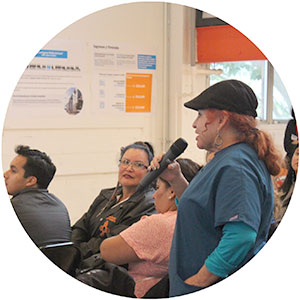 Community Visibility recognizes the inequities and acknowledges vital contributions of Equity communities to the city and emphasizes our expression, power, and expertise within the urban landscape. The workgroup explores actionable steps to shape the City’s vision and commitment that empowers our communities, influences public officials, and drives change. This approach elevates Equity communities' voices, ensuring our needs, cultural legacy, and ever-evolving contributions are documented, valued, and integrated into city life.
Community Visibility recognizes the inequities and acknowledges vital contributions of Equity communities to the city and emphasizes our expression, power, and expertise within the urban landscape. The workgroup explores actionable steps to shape the City’s vision and commitment that empowers our communities, influences public officials, and drives change. This approach elevates Equity communities' voices, ensuring our needs, cultural legacy, and ever-evolving contributions are documented, valued, and integrated into city life.
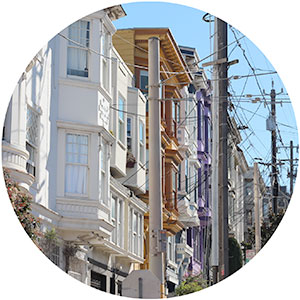 Housing Stability in BIPOC communities requires affordable, secure, and quality housing options, alongside community connections and supportive services to address holistic needs. The workgroup will prioritize racial and social justice, focusing on the needs of existing residents, newcomer communities, and vulnerable populations. Its actions will inform policy and investment decisions by City Planning and other responsible agencies, aiming to enhance the well-being of BIPOC communities, and promote the production, preservation and protection of affordable housing.
Housing Stability in BIPOC communities requires affordable, secure, and quality housing options, alongside community connections and supportive services to address holistic needs. The workgroup will prioritize racial and social justice, focusing on the needs of existing residents, newcomer communities, and vulnerable populations. Its actions will inform policy and investment decisions by City Planning and other responsible agencies, aiming to enhance the well-being of BIPOC communities, and promote the production, preservation and protection of affordable housing.
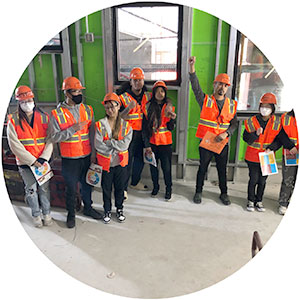 Wealth and Jobs opportunities in Equity communities and neighborhoods are essential for fostering economic empowerment, reducing disparities, and building thriving local economies. The workgroup will prioritize initiatives that address systemic barriers and promote inclusive economic development strategies aimed at enhancing economic mobility, uplifting cultural assets, and stabilizing cultural commercial areas.
Wealth and Jobs opportunities in Equity communities and neighborhoods are essential for fostering economic empowerment, reducing disparities, and building thriving local economies. The workgroup will prioritize initiatives that address systemic barriers and promote inclusive economic development strategies aimed at enhancing economic mobility, uplifting cultural assets, and stabilizing cultural commercial areas.
Members
Member Biographies
Tiffany Carter
 Tiffany Carter is a visionary restaurateur, entrepreneur, investor and a classically trained Chef. She is the owner of Boug Cali one of the few brick and mortar Black restaurants in San Francisco. Known respectfully as Neighborhood Tiff, she is a San Francisco native from Bayview Hunters Point who believes that Black culture and representation are critical pieces of the City’s history. As a community stakeholder and mother to a young Blacktivist, Tiffany is focused on developing and protecting Black space, Black equity, and Black culture in San Francisco.
Tiffany Carter is a visionary restaurateur, entrepreneur, investor and a classically trained Chef. She is the owner of Boug Cali one of the few brick and mortar Black restaurants in San Francisco. Known respectfully as Neighborhood Tiff, she is a San Francisco native from Bayview Hunters Point who believes that Black culture and representation are critical pieces of the City’s history. As a community stakeholder and mother to a young Blacktivist, Tiffany is focused on developing and protecting Black space, Black equity, and Black culture in San Francisco.
Anni Chung
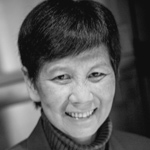 Anni Chung oversees and manages a Bay Area community-based organization, Self-Help for the Elderly that provides a comprehensive range of health, educational, social, and recreational services to over 40,000 seniors a year in the San Francisco Bay Area. Since 1966, Self-Help has provided a comprehensive range of eldercare services that includes Senior Nutrition, Case Management, Senior Escorts, Affordable Housing, Licensed HomeCare and Hospice, Adult Day Services, Emergency IHSS, Employment and Training for Older Workers, HICAP, Transportation, and Residential Care for Alzheimer’s patients. Self-Help operates 15 Senior Centers, three Affordable senior housing projects, and the Chinatown One-Stop Career Link Access center for immigrant job seekers. With a staff of over 300 and an annual budget of $30 million, Self-Help started in San Francisco Chinatown and now serves seniors in five Bay Area counties: San Francisco, San Mateo, Santa Clara, Alameda, and Contra Costa Counties. Anni has been Self-Help’s CEO since 1981. Anni currently serves on the Steering Committee of API Council. She also serves on the Board of Wildflowers Institute and is the Elder Abuse Chair of the Family Violence Council in San Francisco. In October 2020, Governor Newsom appointed her to serve on the California Commission on Aging. Anni is the Producer of a Public Affairs show called “Chinese Journal” for KTSF-TV 26.
Anni Chung oversees and manages a Bay Area community-based organization, Self-Help for the Elderly that provides a comprehensive range of health, educational, social, and recreational services to over 40,000 seniors a year in the San Francisco Bay Area. Since 1966, Self-Help has provided a comprehensive range of eldercare services that includes Senior Nutrition, Case Management, Senior Escorts, Affordable Housing, Licensed HomeCare and Hospice, Adult Day Services, Emergency IHSS, Employment and Training for Older Workers, HICAP, Transportation, and Residential Care for Alzheimer’s patients. Self-Help operates 15 Senior Centers, three Affordable senior housing projects, and the Chinatown One-Stop Career Link Access center for immigrant job seekers. With a staff of over 300 and an annual budget of $30 million, Self-Help started in San Francisco Chinatown and now serves seniors in five Bay Area counties: San Francisco, San Mateo, Santa Clara, Alameda, and Contra Costa Counties. Anni has been Self-Help’s CEO since 1981. Anni currently serves on the Steering Committee of API Council. She also serves on the Board of Wildflowers Institute and is the Elder Abuse Chair of the Family Violence Council in San Francisco. In October 2020, Governor Newsom appointed her to serve on the California Commission on Aging. Anni is the Producer of a Public Affairs show called “Chinese Journal” for KTSF-TV 26.
Majeid Crawford
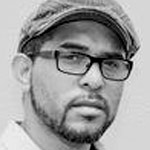 Majeid Crawford is the Executive Director of New Community Leadership Foundation (NCLF). NCLF’s volunteered based, 501(C)(3) organization was established in San Francisco’s diverse and historic Fillmore neighborhood in 2015. Through programs encompassing cultural upliftment, historic preservation, economic development, civic engagement, artistic empowerment, equity advancement, and much more, NCLF is working to empower San Francisco’s Black community while uniting with all of San Francisco’s stakeholders and decisionmakers to work collaboratively toward bold initiatives for economic and racial justice. NCLF’s ultimate goal is to give every San Francisco resident a fair chance at a high standard of living and an equal chance to live the dream in SF.
Majeid Crawford is the Executive Director of New Community Leadership Foundation (NCLF). NCLF’s volunteered based, 501(C)(3) organization was established in San Francisco’s diverse and historic Fillmore neighborhood in 2015. Through programs encompassing cultural upliftment, historic preservation, economic development, civic engagement, artistic empowerment, equity advancement, and much more, NCLF is working to empower San Francisco’s Black community while uniting with all of San Francisco’s stakeholders and decisionmakers to work collaboratively toward bold initiatives for economic and racial justice. NCLF’s ultimate goal is to give every San Francisco resident a fair chance at a high standard of living and an equal chance to live the dream in SF.
Mahsa Hakimi
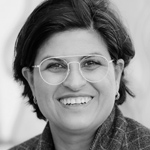 Mahsa Hakimi is the founder of Hakimi Law PC, a boutique business and intellectual property law firm in San Francisco focused on protecting the creative talent and legal interest of artists and entrepreneurs alike. She is an avid LGBTQ+ and women’s rights advocate and has proudly served the interest of the communities she represents for the past three decades. She was one of the founding members of HASHA, the first Iranian LGBTQ network of Northern California in early 90’s. She has served on numerous advisory boards throughout the years, including the Community Advisory Board of UCSF Alliance Health Project. She was also the inaugural Executive Co-Chair of Castro LGBTQ Cultural District. She currently serves as a member of the San Francisco Planning Department Community Equity Advisory Council and as the Commissioner for the San Francisco Arts Commission.
Mahsa Hakimi is the founder of Hakimi Law PC, a boutique business and intellectual property law firm in San Francisco focused on protecting the creative talent and legal interest of artists and entrepreneurs alike. She is an avid LGBTQ+ and women’s rights advocate and has proudly served the interest of the communities she represents for the past three decades. She was one of the founding members of HASHA, the first Iranian LGBTQ network of Northern California in early 90’s. She has served on numerous advisory boards throughout the years, including the Community Advisory Board of UCSF Alliance Health Project. She was also the inaugural Executive Co-Chair of Castro LGBTQ Cultural District. She currently serves as a member of the San Francisco Planning Department Community Equity Advisory Council and as the Commissioner for the San Francisco Arts Commission.
Lara Kiswani
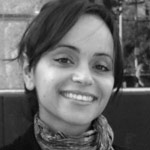 Lara Kiswani is the Executive Director of Arab Resource & Organizing Center (AROC), serving poor and working-class Arabs and Muslims across the San Francisco Bay Area, and organizing to overturn racism, forced migration, and militarism. Lara is from Beit Iksa and Aqir, Palestine, and was born and raised in the San Francisco Bay Area. She received her master’s in education at San Francisco State University, and a bachelor’s degree in International Relations at the UC Davis. Lara has been active in movements against racism and war, for Palestinian self-determination, and international solidarity for the last 20 years. In 2015 Lara was granted the Leader Spring Center fellowship and awarded the Vera Haile Champion of Justice from the San Francisco Immigrant Rights Commission in 2017. In 2016, Lara represented her community as part of the historic Black and Indigenous delegation to Palestine. In 2019, AROC cohosted San Francisco City Hall’s first-ever Ramadan iftar. Lara is currently a San Francisco Foundation Mission Neighborhood Koshland Fellow, 2021 Yerba Buena Center for the Arts 100 Honoree, and a faculty member at San Francisco State University in the College of Ethnic Studies.
Lara Kiswani is the Executive Director of Arab Resource & Organizing Center (AROC), serving poor and working-class Arabs and Muslims across the San Francisco Bay Area, and organizing to overturn racism, forced migration, and militarism. Lara is from Beit Iksa and Aqir, Palestine, and was born and raised in the San Francisco Bay Area. She received her master’s in education at San Francisco State University, and a bachelor’s degree in International Relations at the UC Davis. Lara has been active in movements against racism and war, for Palestinian self-determination, and international solidarity for the last 20 years. In 2015 Lara was granted the Leader Spring Center fellowship and awarded the Vera Haile Champion of Justice from the San Francisco Immigrant Rights Commission in 2017. In 2016, Lara represented her community as part of the historic Black and Indigenous delegation to Palestine. In 2019, AROC cohosted San Francisco City Hall’s first-ever Ramadan iftar. Lara is currently a San Francisco Foundation Mission Neighborhood Koshland Fellow, 2021 Yerba Buena Center for the Arts 100 Honoree, and a faculty member at San Francisco State University in the College of Ethnic Studies.
Lucia Obrego
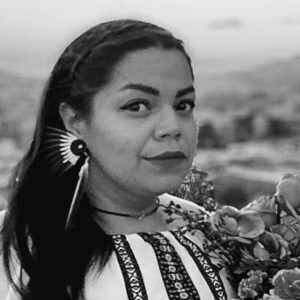 Lucia Obregon is a queer artist and community organizer from Guatemala, currently living in San Francisco, California. As the policy analyst and organizing manager at the Mission Economic Development Agency, she focuses on equitable housing, civic engagement, and education through a leadership program she developed. Lucia also serves as the chair of the Newcomer Committee for the Immigrant Rights Commission, connecting with immigrant communities and addressing their needs. In her personal pursuits, she collaborates with the Build Community Collective on events centered around Black liberation and Indigenous sovereignty. A lead singer in the band Inti Batey, Lucia's music blends traditional and contemporary Latinx sounds, reflecting themes of political oppression and spiritual awakening. Her work in both art and activism aims to create spaces for healing, collaboration, and the exploration of intersectionality in relation to art, identity, and social justice.
Lucia Obregon is a queer artist and community organizer from Guatemala, currently living in San Francisco, California. As the policy analyst and organizing manager at the Mission Economic Development Agency, she focuses on equitable housing, civic engagement, and education through a leadership program she developed. Lucia also serves as the chair of the Newcomer Committee for the Immigrant Rights Commission, connecting with immigrant communities and addressing their needs. In her personal pursuits, she collaborates with the Build Community Collective on events centered around Black liberation and Indigenous sovereignty. A lead singer in the band Inti Batey, Lucia's music blends traditional and contemporary Latinx sounds, reflecting themes of political oppression and spiritual awakening. Her work in both art and activism aims to create spaces for healing, collaboration, and the exploration of intersectionality in relation to art, identity, and social justice.
Raquel Redondiez
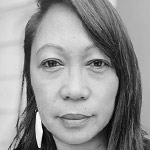 For 15 years, serving as a legislative aide at the San Francisco Board of Supervisors, Raquel has worked with communities of color to develop policies that advance racial equity in the City. She was instrumental in crafting legislation to create the strongest local hiring law in the nation for women and BIPOC workers in construction trades, strengthen Sanctuary City policy protections for immigrants and expand tenant protections for seniors, low-income families, and LGBTQ community members. Working on the City budget, she helped preserve the social safety net for BIPOC communities and working families during the Great Recession.
For 15 years, serving as a legislative aide at the San Francisco Board of Supervisors, Raquel has worked with communities of color to develop policies that advance racial equity in the City. She was instrumental in crafting legislation to create the strongest local hiring law in the nation for women and BIPOC workers in construction trades, strengthen Sanctuary City policy protections for immigrants and expand tenant protections for seniors, low-income families, and LGBTQ community members. Working on the City budget, she helped preserve the social safety net for BIPOC communities and working families during the Great Recession.
Del Seymour
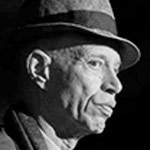 For the last 15 years, Del Seymour advocated for economic parity for those in life transitions. He worked to ensure dignity, preserve history, and create economic health pathways in San Francisco and the Bay Area. He founded Tenderloin Walking Tours in 2008 to convene old and new residents while highlighting the vibrant Tenderloin neighborhood through historic preservation. Since its inception, 20,000+ visitors have followed him on a rich cultural journey towards a better understanding of the barriers for homeless individuals in the Tenderloin. He expanded his mission with Code Tenderloin, which focuses on barrier removal and workforce development that restores dignity and opens economic well-being pathways for the unhoused, formerly incarcerated, and those struggling with addiction.
For the last 15 years, Del Seymour advocated for economic parity for those in life transitions. He worked to ensure dignity, preserve history, and create economic health pathways in San Francisco and the Bay Area. He founded Tenderloin Walking Tours in 2008 to convene old and new residents while highlighting the vibrant Tenderloin neighborhood through historic preservation. Since its inception, 20,000+ visitors have followed him on a rich cultural journey towards a better understanding of the barriers for homeless individuals in the Tenderloin. He expanded his mission with Code Tenderloin, which focuses on barrier removal and workforce development that restores dignity and opens economic well-being pathways for the unhoused, formerly incarcerated, and those struggling with addiction.
Mary E Travis-Allen
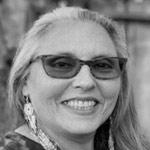 Mary (Mayagna, Chortega, Seneca) volunteers for Indian Ed and sits on the SFUSD School Names Advisory Committee. Mary was born, raised and educated in San Francisco. She has roots with Alcatraz, Wounded Knee occupation, and the American Indian Movement. In the 70's she frequently spoke at rallies and networked with many other emerging political activist groups in the San Francisco Bay Area that advocated for racial equality, freedom of political prisoners and more. Mary is privileged to know and stand with many leaders that fought against the racial and political oppression that was prevalent in this Country (and still exists).
Mary (Mayagna, Chortega, Seneca) volunteers for Indian Ed and sits on the SFUSD School Names Advisory Committee. Mary was born, raised and educated in San Francisco. She has roots with Alcatraz, Wounded Knee occupation, and the American Indian Movement. In the 70's she frequently spoke at rallies and networked with many other emerging political activist groups in the San Francisco Bay Area that advocated for racial equality, freedom of political prisoners and more. Mary is privileged to know and stand with many leaders that fought against the racial and political oppression that was prevalent in this Country (and still exists).
Ben Wong
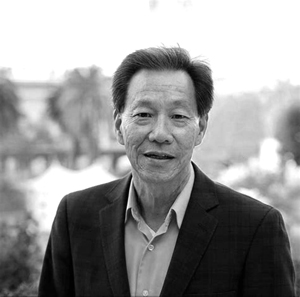 After almost 10 years in the private sector, Ben transitioned into the nonprofit world through various community-based organizations. His 20 plus years of nonprofit experience includes direct service with children, youth, families, and communities, project and program management, and executive and board management. He possesses a background and interest in education, youth development, child development, and juvenile justice.
After almost 10 years in the private sector, Ben transitioned into the nonprofit world through various community-based organizations. His 20 plus years of nonprofit experience includes direct service with children, youth, families, and communities, project and program management, and executive and board management. He possesses a background and interest in education, youth development, child development, and juvenile justice.
William Ortiz-Cartagena
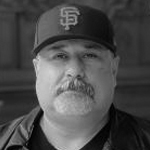 William Ortiz-Cartagena, born and raised in the San Francisco’s Mission District, has over ten years in the hospitality industry enjoying a successful career with Joie de Vivre hospitality. After leaving Joie de Vivre, William founded several companies and now focuses his efforts on the challenges experienced by underserved communities in San Francisco. William has served on various non-profit Boards, including as a former Board Chair of the Mission Economic Development Agency. He is currently serving as the Latino Task Force's Subcommittee Chair for Small Business. William founded and serves on the Board of Clecha, a non-profit that focuses on small business assistance services.
William Ortiz-Cartagena, born and raised in the San Francisco’s Mission District, has over ten years in the hospitality industry enjoying a successful career with Joie de Vivre hospitality. After leaving Joie de Vivre, William founded several companies and now focuses his efforts on the challenges experienced by underserved communities in San Francisco. William has served on various non-profit Boards, including as a former Board Chair of the Mission Economic Development Agency. He is currently serving as the Latino Task Force's Subcommittee Chair for Small Business. William founded and serves on the Board of Clecha, a non-profit that focuses on small business assistance services.
Meeting Summaries
2024 Meeting Summaries
2023 Meeting Summaries
- December – cancelled
- November meeting - cancelled
- October 24, 2023
- August 22, 2023
- July 25, 2023
- June 3, 2023
- April 25, 2023
- March 28, 2023
- February 28, 2023
- January meeting - cancelled
2022 Meeting Summaries
Strategies
Current Projects
- Engagement with MOHCD and SF Planning on records of displaced people and Certificates of Preference
- Engage equity communities by developing and distributing accessible educational materials on the Affordable Housing Pipeline
- Exploring strategies to strengthen community cultural corridors along 3rd Street, Mission Street, and Larkin Street to enhance cultural vibrancy and support local businesses
- Support small businesses to become city vendors
Past Accomplishments
Planning Department Budget and Priorities
- Secured commitment for an annual community engagement budget of $750K
- Supported community engagement fellowships in collaboration with American Indian and Black Communities
- Advocated for local internships to ensure opportunities for SF-based equity community members
- Participated in hiring panel for Equity Plan manager, Policies and Strategies Manager, and Fillmore Community staff
Recovery Strategies
- Completed and presented Equity Vision of Downtown at Planning Commission Hearing
- Shared Equity Vision of Downtown with Powell St. Improvement Project
Housing Element and other General Plan Elements
- Strengthened equity framework on Affordable Housing Leadership Council recommendations
- Helped shape equity communities’ housing priorities
- Recommended and provided feedback on the creation of the Housing Pipeline Infographic
Community Engagement
- Supported American Indian Community Housing Workshop
- Supported work of staff liaisons in Equity communities; American Indian, Mission, Soma, Tenderloin, Bayview, Fillmore, and Japantown, Castro, and Leather Cultural Districts
Racial and Social Equity Plan
- Provided guidance on Planning Code Audit
- Guided equity focused Planning internship programs
- Advocated for Historically Black Colleges and University internship program as part of Downtown recovery strategies
These projects have grown out of the original Equity Council strategies.
Resources
Learn more about the Equity Advisory Council’s work:
